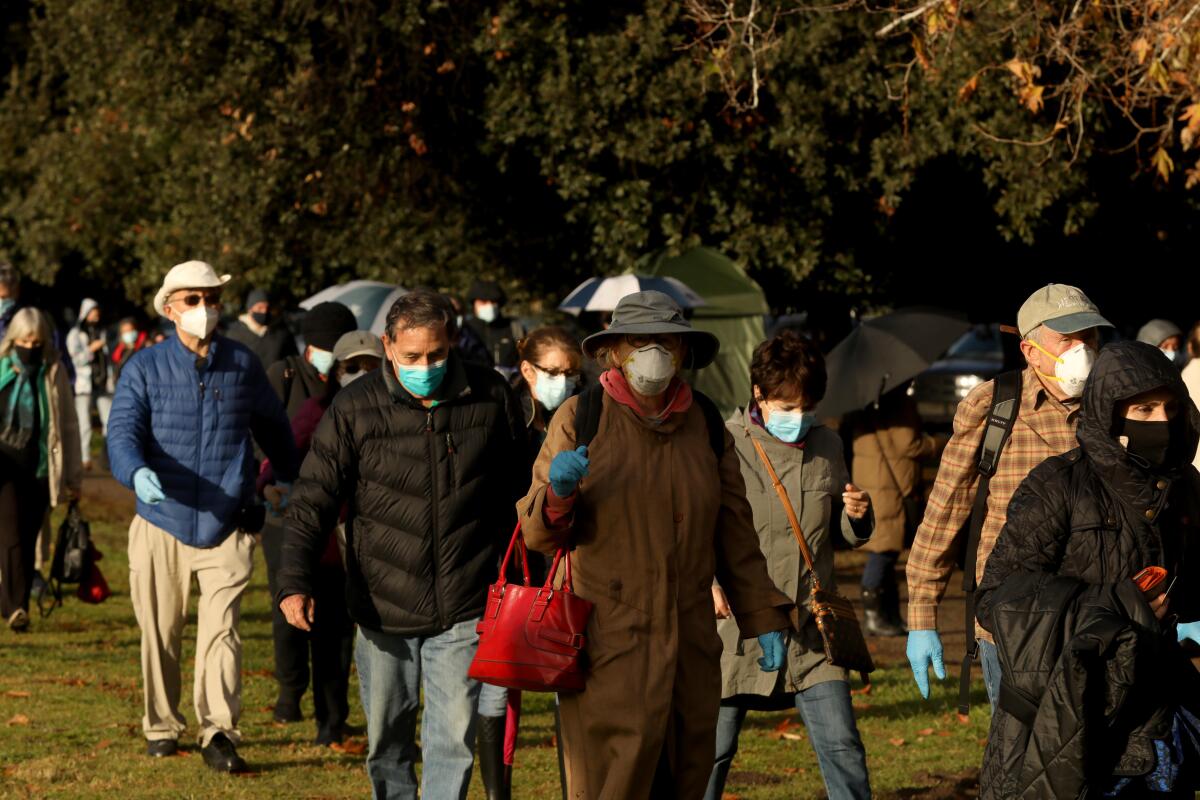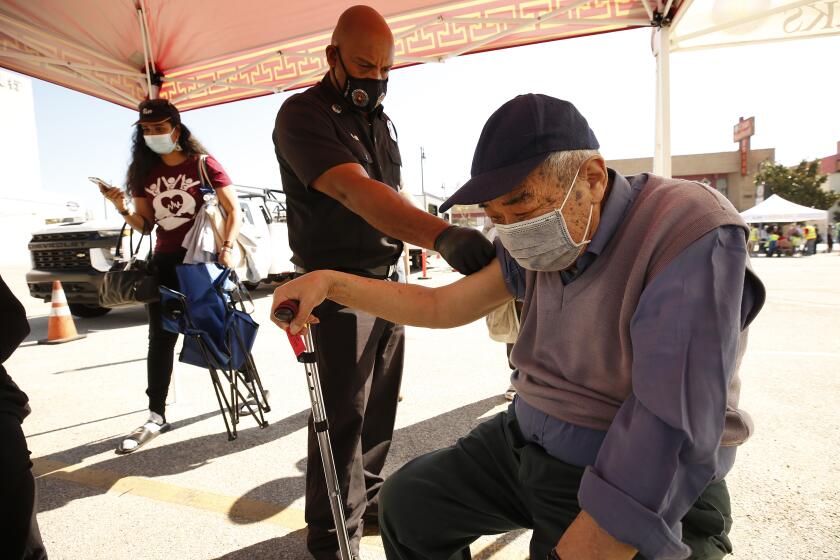Op-Ed: A doctor gave away expiring COVID vaccine doses. Should he have been charged with a crime?

- Share via
When Hasan Gokal, medical director of a COVID-19 response team in the Houston area, found himself with an opened vial of the Moderna vaccine and no one to administer it to, he offered it to those on site who qualified to get the shot — healthcare workers and police officers — but they had already been vaccinated or declined.
The vaccine comes in vials containing 11 doses. A vial, once opened, expires in six hours, and unused vaccine must then be thrown away.
Ten doses remained. By calling around to get people to come to him and making house calls, Gokal found 10 people willing to get vaccinated on that late December day.
That would have exhausted the supply, but one canceled. Gokal’s wife has pulmonary sarcoidosis, a lung condition that made her eligible to be vaccinated. “I didn’t intend to give this to you,” he said he told her, “but in a half-hour I’m going to have to dump this down the toilet.” Fifteen minutes before the last dose would expire, he vaccinated her.
The next morning, Gokal told his supervisor what had happened. A few days later, he was informed he should have returned the remaining doses, even if they would then have expired and been thrown away. For failing to do so, he was dismissed.
Weeks later, the Harris County district attorney charged Gokal with theft and with breaking county protocols. When Gokal’s lawyer requested a copy of the protocols, a prosecutor told him they did not exist. A judge dismissed the charges, saying the district attorney had failed to show that Gokal, as the medical advisor for the county’s COVID-19 response, did not have the right to decide whom to vaccinate. The district attorney plans to pursue the case.
With COVID-19 vaccine supplies still tight, officials have been forced to make agonizing choices about who should get priority.
Some moral systems treat rules as inviolable. The Roman Catholic Church, for example, holds that to take an innocent human life is always wrong.
During childbirth, the baby’s skull can become lodged in the vagina and all attempts to dislodge it fail. If nothing is done, both mother and baby will die. Before modern obstetrics, the only way to prevent that double tragedy was for a doctor to crush the baby’s skull. The baby would die, but the woman would live. In Catholic countries, that procedure was prohibited because it was direct killing of the baby. As a result, women who could have been saved died.
Utilitarianism takes another view. Its founder, Jeremy Bentham, would ask of any law, custom or moral rule, “What is the use of it?” He meant: What does it do to increase happiness or reduce suffering? Bentham and his followers applied that test to a wide range of laws and institutions — the slave trade, restrictions on who could vote, victimless “crimes” such as homosexuality, and the subordinate status of women.
Rules have an important place. The philosopher John Stuart Mill thought they embodied the wisdom and experience of past generations about the kind of conduct likely to bring about a better life for all. Nevertheless, for Mill, rules were not absolute. “To save a life,” he wrote, “it may not only be allowable, but a duty, to steal.”
We will never know if one of Gokal’s 10 injections saved a life, but they surely increased the peace of mind of those who might have had to wait days or weeks to be vaccinated. In any case, he did not steal. Obviously, using the doses to vaccinate people had better consequences than throwing them away — except for Gokal losing his job and being threatened with prosecution.
From the injustice done to Gokal we can learn the value of sensible rules to guide vaccination administrators. In Los Angeles, unofficial standby lines outside clinics have been tacitly accepted by the Los Angeles County Department of Public Health, which has instructed healthcare providers to avoid throwing away unused doses. In Israel, people who aren’t yet eligible for vaccination can register to receive a text alert if vaccines that would otherwise be wasted are available nearby.
The other lesson to be learned is that it is wrong to punish those who do their best in the absence of clear rules, or in situations that fall outside the range of possibilities contemplated by those who drew up the prevailing rules. In such cases, people should be encouraged to exercise their own judgment to bring about the best consequences for all.
Peter Singer is a professor of bioethics at Princeton University and founder of the nonprofit organization the Life You Can Save. His books include “Ethics in the Real World” and “Animal Liberation.”
More to Read
A cure for the common opinion
Get thought-provoking perspectives with our weekly newsletter.
You may occasionally receive promotional content from the Los Angeles Times.











